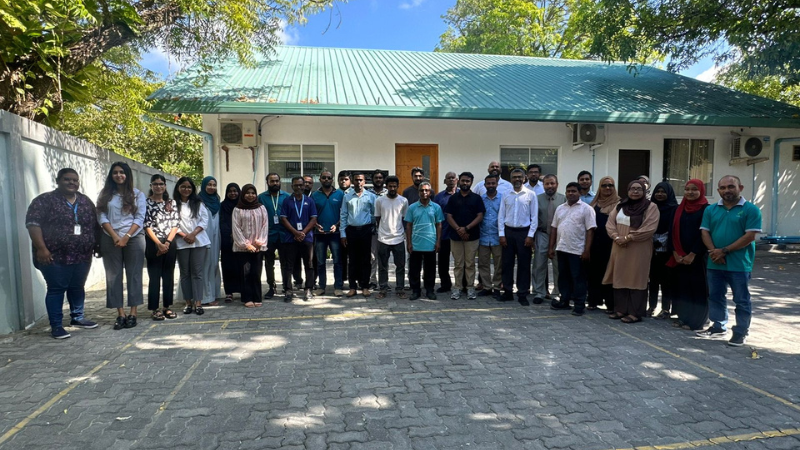A stakeholder consultation workshop on Adaptation Tracking and Nationally Determined Contributions (NDC) 3.0 was successfully held in Fuvahmulah City, with 23 participants in attendance. The workshop was conducted under the Capacity Strengthening for Improved Transparency of Climate Change Mitigation and Adaptation Actions in the Maldives (CBIT Maldives) project, funded by the Global Environment Facility (GEF) and supported by the United Nations Environment Programme (UNEP).
The workshop included stakeholders from various public organizations, NGOs, and representatives from the major sectors of the community, such as Fuvahmulah City Council, Women’s Development Committee, Maldives Meteorological Service, Agro National Corporation Limited, Fuvahmulah Airport, FENAKA, WAMCO, Women in Fuvahmulah, Isles of Tomorrow, Maldives Red Crescent, Schools, Fuvahmulah Hospital, and Ministry of Cities, Local Government and Public Works.
![]()
The objective of the workshop was to facilitate discussions and gather stakeholder input on the development of adaptation tracking focused on the agriculture sector. Fuvahmulah City is one of the islands selected under the CBIT Maldives project to pilot adaptation tracking methodologies in the agriculture sector. The feedback from this consultation will contribute to developing indicators and tools for tracking adaptation in agriculture.
![]()
Additionally, the workshop aimed to equip participants with knowledge on the Maldives’ NDC under the Paris Agreement and ensure that the NDC 3.0 reflects the country’s climate action priorities, including mitigation, adaptation, and support needs, through stakeholder consultations. The Maldives’ NDC 3.0 formulation process is a critical step toward meeting the country’s climate commitments under the Paris Agreement. The process is expected to be completed by February 2025 to meet the UNFCCC submission deadline.
By aligning the Maldives’ transparency efforts in line with the Enhanced Transparency Framework (ETF) of the Paris Agreement, the CBIT Maldives project seeks to strengthen long-term institutional arrangements, systemize data collection and processing, and develop indicators and methodologies. Additionally, the project aims to improve overall data quality and management procedures for GHG inventories, the tracking of mitigation and adaptation actions, and climate finance. These improvements will ensure regular and transparent reporting to the United Nations Framework Convention on Climate Change (UNFCCC). The efforts will also inform national decision-making processes and contribute to the effective management of climate change challenges.
![]()
![]()


